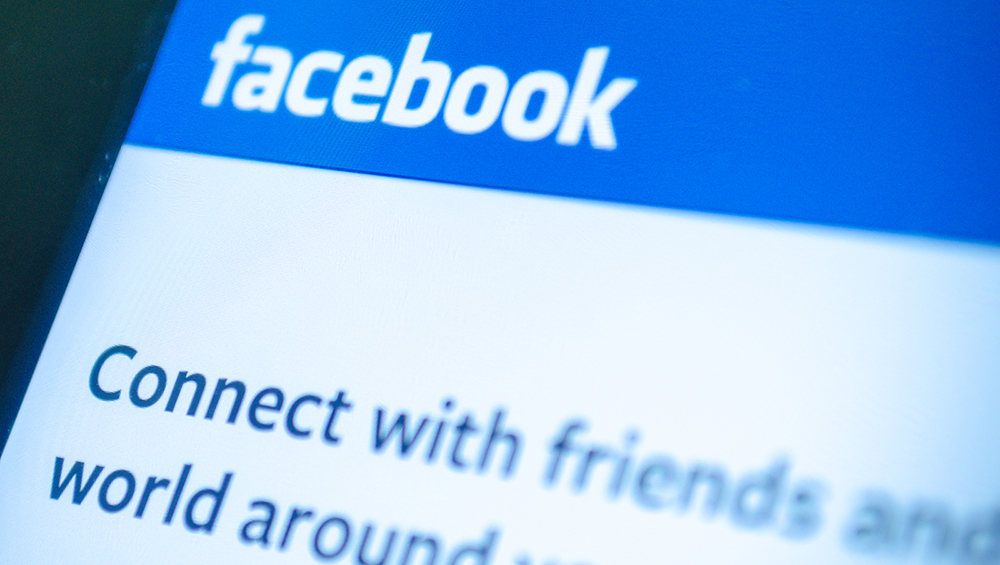People ‘feel safe’ using violent language on Facebook
The company admits that a lack of empathy on social media leads to abusive language


Facebook has admitted that people feel at ease using violent language on its platform, after new documents revealed the categories of content that Facebook does and does not find acceptable.
An investigation by The Guardian has exposed the company's standards for removing offensive material, including the fact that images of animal and child abuse do not have to be deleted unless the context is overtly sadistic.
The report has raised questions about how people behave on the platform, and what level of responsibility - if any - Facebook has to police the content they post.
According to internal training documents seen by The Guardian, Facebook's users feel safe using violent, threatening language to express their frustrations online. "People commonly express disdain or disagreement by threatening or calling for violence in generally facetious and unserious ways," it read. "They feel that the issue won't come back to them and they feel indifferent towards the person they are making the threats about because of the lack of empathy created by communication via devices as opposed to face to face."
According to Facebook, violent imagery and threats do not become serious enough to remove until they transition from "an expression of emotion" to "a plot or design". For example, statements like 'someone shoot Trump' would be eligible for deletion; 'let's beat up fat kids' would not.
Online abuse and harassment has become a persistent problem over the past few years, particularly on social media platforms like Facebook and Twitter, both of which have been faced with calls to crack down on hate speech and bullying. Twitter has responded with measures such as improved reporting tools and the retirement of the default 'egg' display picture.
"We feel responsible to our community to keep them safe and we feel very accountable. It's absolutely our responsibility to keep on top of it," Facebook's head of global policy management Monika Bickert told The Guardian. "It's a company commitment."
Get the ITPro daily newsletter
Sign up today and you will receive a free copy of our Future Focus 2025 report - the leading guidance on AI, cybersecurity and other IT challenges as per 700+ senior executives
Adam Shepherd has been a technology journalist since 2015, covering everything from cloud storage and security, to smartphones and servers. Over the course of his career, he’s seen the spread of 5G, the growing ubiquity of wireless devices, and the start of the connected revolution. He’s also been to more trade shows and technology conferences than he cares to count.
Adam is an avid follower of the latest hardware innovations, and he is never happier than when tinkering with complex network configurations, or exploring a new Linux distro. He was also previously a co-host on the ITPro Podcast, where he was often found ranting about his love of strange gadgets, his disdain for Windows Mobile, and everything in between.
You can find Adam tweeting about enterprise technology (or more often bad jokes) @AdamShepherUK.
-
 Bigger salaries, more burnout: Is the CISO role in crisis?
Bigger salaries, more burnout: Is the CISO role in crisis?In-depth CISOs are more stressed than ever before – but why is this and what can be done?
By Kate O'Flaherty Published
-
 Cheap cyber crime kits can be bought on the dark web for less than $25
Cheap cyber crime kits can be bought on the dark web for less than $25News Research from NordVPN shows phishing kits are now widely available on the dark web and via messaging apps like Telegram, and are often selling for less than $25.
By Emma Woollacott Published
-
 Meta to pay $725 million in Cambridge Analytica lawsuit settlement
Meta to pay $725 million in Cambridge Analytica lawsuit settlementNews The settlement closes the long-running lawsuit into how Facebook's owner, Meta, handled the Cambridge Analytica scandal
By Ross Kelly Published
-
 Meta's earnings are 'cause for concern' and 2023 looks even bleaker
Meta's earnings are 'cause for concern' and 2023 looks even bleakerAnalysis Calls for investor faith in metaverse tech only emphasise the worries that its investment strategy won't pay off
By Rory Bathgate Published
-
 Microsoft and Meta announce integration deal between Teams and Workplace
Microsoft and Meta announce integration deal between Teams and WorkplaceNews Features from both business collaboration platforms will be available to users without having to switch apps
By Connor Jones Published
-
 Facebook is shutting down its controversial facial recognition system
Facebook is shutting down its controversial facial recognition systemNews The move will see more than a billion facial templates removed from Facebook's records amid a push for more private applications of the technology
By Connor Jones Published
-
 'Changing name to Meat': Industry reacts to Facebook's Meta rebrand
'Changing name to Meat': Industry reacts to Facebook's Meta rebrandNews The rebrand attempts to provide a clearer distinction between Facebook and its umbrella company
By Connor Jones Published
-
 Facebook's Oversight Board demands more transparency
Facebook's Oversight Board demands more transparencyNews Board bashed the social media giant for its preferential treatment of certain high-profile accounts
By Danny Bradbury Published
-
 Facebook claims AI managed to reduce hate speech by 50%
Facebook claims AI managed to reduce hate speech by 50%News The social media platform has hit back at claims the tech it uses to fight hate speech is inadequate
By Sabina Weston Published
-
 Facebook to hire 10,000 workers across the EU
Facebook to hire 10,000 workers across the EUNews The high-skilled jobs drive is a “vote of confidence” in the European tech industry
By Jane McCallion Published